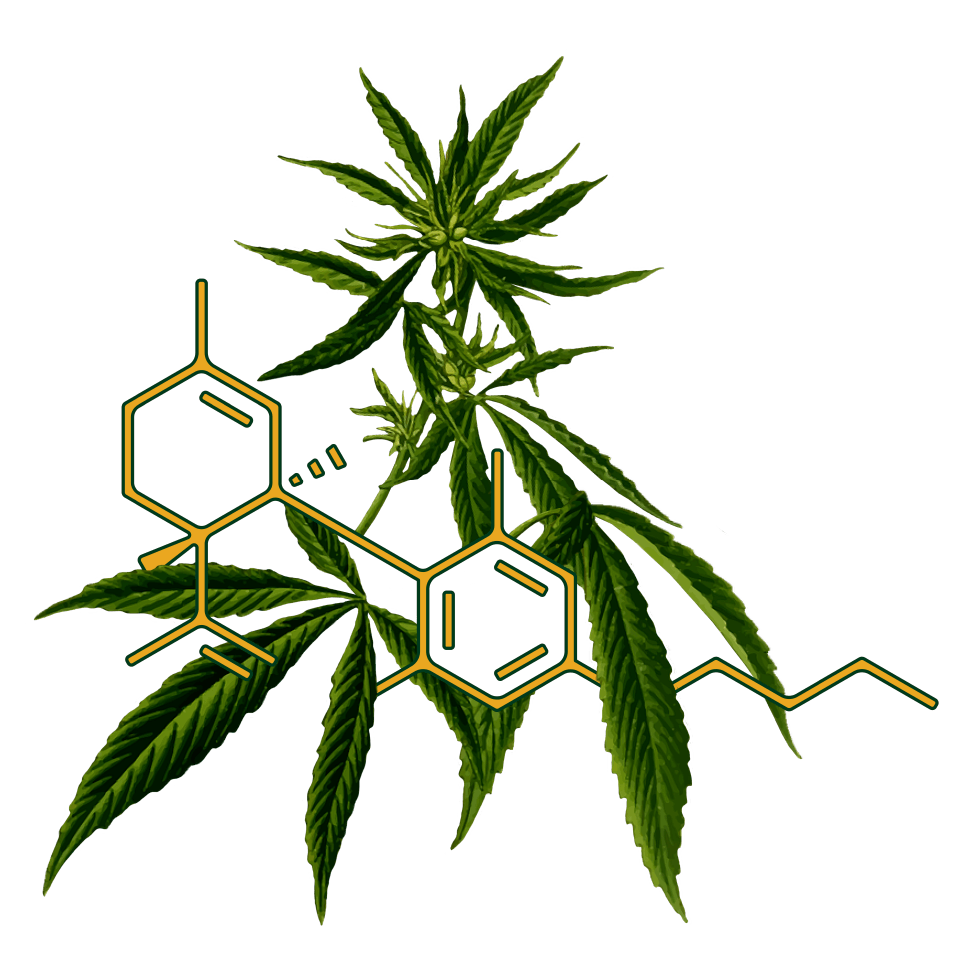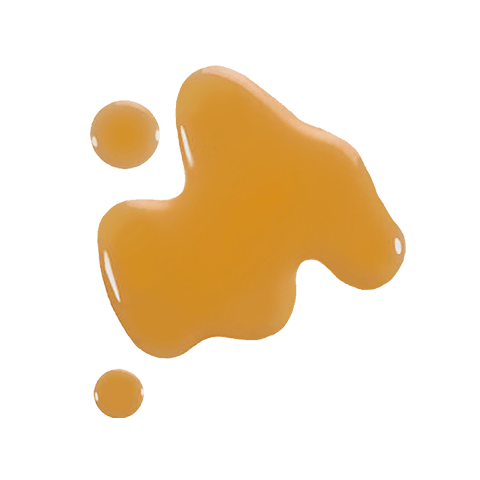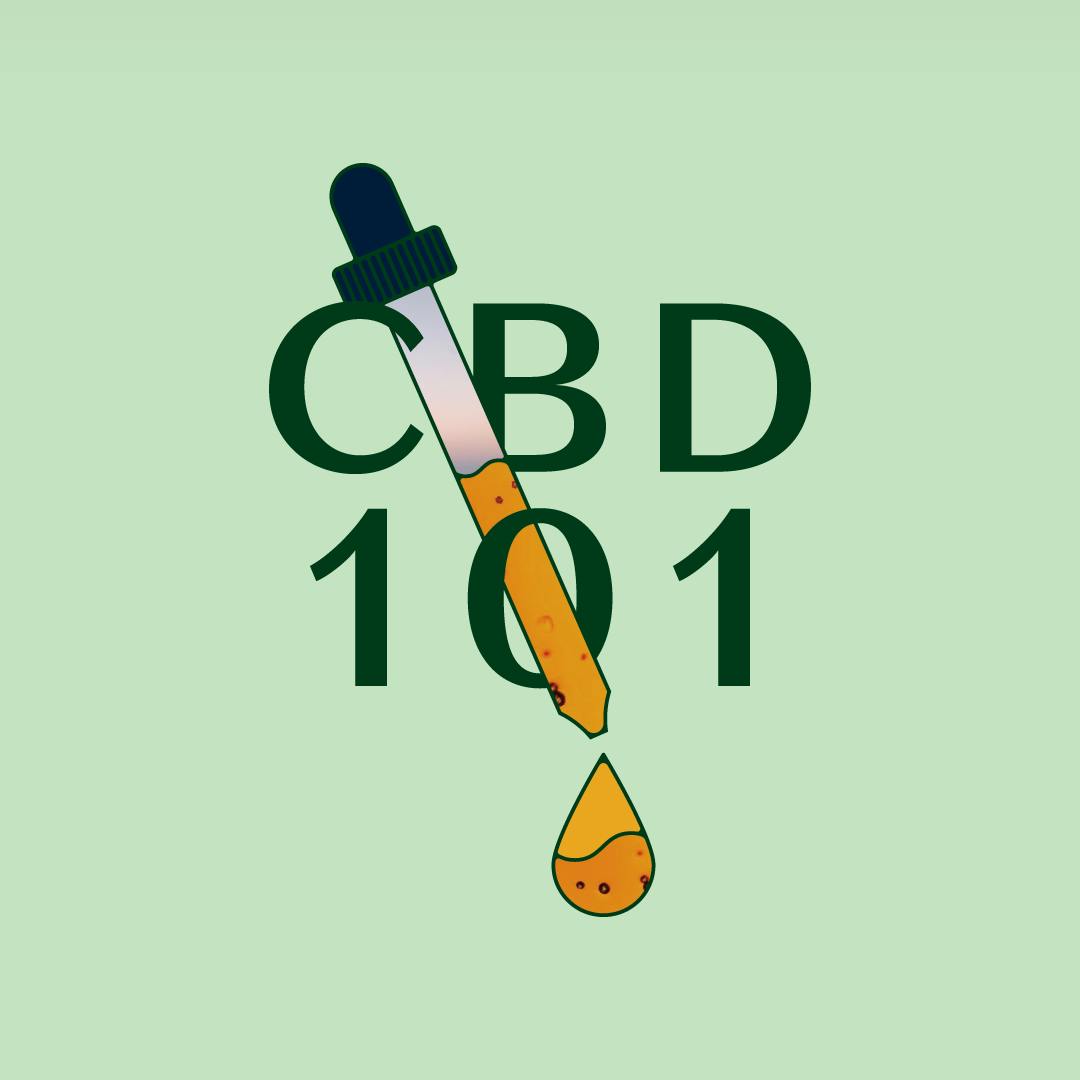Table of contents
1. What exactly is CBD?
2. What are the health benefits of CBD?
3. How exactly does CBD work?
4. So what is THC?
5. Does CBD get you high?
6. Are there any risks associated with CBD?
7. Finally, the big question: does CBD actually do what it says on the tin?
Illustrated by Sabrina Bezerra, Erin Rommel & Ralitza Nikolova
By now, it’s an understatement to say that CBD is everywhere. Those three letters have become an instant shorthand for sound sleep, a stress relief, an electric, satisfying sex life and a blessed reprieve from pain. And if you’ve ever used a Daye CBD-coated tampon, you’ll likely be aware of the cloud-like, dreamy comfort CBD can offer on days when you’d otherwise have been clenched in a period-induced grimace.
But how much do you actually know about CBD? Given that it was illegal in Europe until 2016 and that the CBD industry has a notorious history of being largely unregulated, we wouldn’t blame you if CBD raises more questions than answers. So, we’ve put together a CBD guide: to help you fill in those gaps in your CBD knowledge, period-related or otherwise.
What exactly is CBD?
For starters, it’s short for cannabidiol and takes the form of a natural plant compound. “It’s one of dozens of plant chemicals collectively called cannabinoids, found in the hemp plant,” says Clinical Neuroscientist and CBD expert, Dr. Elisabeth Philipps.
“Cannabinoids such as CBD are found primarily in the flower of hemp and marijuana plants, which are closely related cousins,” explains Colin Reily PhD, co-founder of Natural Dos. “CBD is […] most abundant in the hemp flower.”

What are the health benefits of CBD?
Short answer: a lot. “Clinical trials around CBD in human health are still quite limited, but the research and real-world evidence from people taking CBD suggests CBD may help boost mood…and manage pain, as well as help with better quality sleep,” explains Philipps.
Other reported benefits include “better mental wellness for anxiety support”, “improved nausea” and “joint discomfort associated with different inflammatory conditions like arthritis”, as Reily says. “Currently, the only FDA (and NHS) approved use for CBD is seizure management in epileptic patients, but there are dozens of ongoing clinical trials testing efficacy in multiple health conditions,” he continues.
How exactly does CBD work?
Two words: endocannabinoid system. “This system is found throughout the body – including in the brain, gut, lungs, skin, reproductive organs and immune system – and is responsible for maintaining balance throughout the body,” explains Philipps. “CBD either applied on the skin; ingested as an oil under the tongue; inhaled via a vape or swallowed in capsules getting into the body via the gut acts mainly within the body’s own endocannabinoid system.
“The ECS helps the body remain stable during times of inflammation, stress, illness and just general day-to-day living,” Philipps continues.
It’s worth remembering, too, that there are different types of CBD. There’s full-spectrum, which contains all components from the original plant, including up to 0.3% THC (more on this below) and results in the ‘entourage effect’: multiple properties from the hemp plant all working together in an effective way. Then there’s broad-spectrum CBD, which has the THC totally removed; and CBD isolate, which is pure CBD and has no extra chemicals (and no entourage effect, either).

So what is THC?
It stands for tetrahydrocannabinol, which is the central psychoactive ingredient in cannabis. “THC is known for its psychoactive properties…whereas CBD is not considered to have psychoactive properties, even though it can affect mood,” says Reily.
“THC is another cannabinoid found in hemp but it has a different structure and therefore different actions in the body compared to CBD,” explains Philipps. “You won’t find THC in food supplements listed in reputable brands but THC is present in controlled amounts in medical cannabis products as it does have some specialist health properties.”
Presumably, your natural next question is:
Does CBD get you high?
It’s a no. “CBD does not activate the part of the ECS that causes you to get high,” says Philipps. “This means CBD is termed ‘non-euphoric’, unlike […] THC.”
Crucially, CBD products can’t contain more than 0.2% THC if they want to be sold in the UK – or “0% THC if they are CBD isolate products,” as Philipps adds – and this is highly unlikely to get you high.
“
Plant based medicines have a bright future, but it’s important to check the quality of the CBD product before buying by looking for a certificate of analysis (CoA) performed by a third party.
Are there any risks associated with CBD?
The main risk comes in the form of gaps in the general knowledge around CBD. As Reily said, clinical trials are rife; but because CBD was illegal until very recently, there is a limit to what we know. Take pregnancy and breastfeeding, for example: we don’t know for sure that it’s fundamentally unsafe to use CBD during these times, but we certainly don’t know that it’s safe, either. Best to err on the side of caution and avoid it completely if you’re expecting or breastfeeding, until we know more.
Then there’s the lack of regulation itself. “Plant based medicines have a bright future, but it’s important to check the quality of the CBD product before buying by looking for a certificate of analysis (CoA) performed by a third party,” says Reily. And if you’re ever remotely concerned, you should speak to a healthcare professional: and always consult your doctor if you’re thinking of taking CBD while you’re on any medications.
Finally, the big question: does CBD actually do what it says on the tin?
As CBD and wellness brand House of Wise says: “Many people are turning to CBD in their wellness routines, swapping out alcohol and other coping substances for their sleep, sex and focus regimens”.
And Philipps concurs that it’s certainly an effective route for those seeking a healthy lifestyle, or who want to prioritise wellness: but a well-rounded life is always best. “Our ECS can always do with support as we often lead stressful busy lives,” she says. “CBD can play a part in that, but remember health should be a holistic approach – CBD works best if taken alongside a healthy diet [and] lifestyle changes including [a] sleep hygiene programme, stress management, fresh air [and] exercise.”







